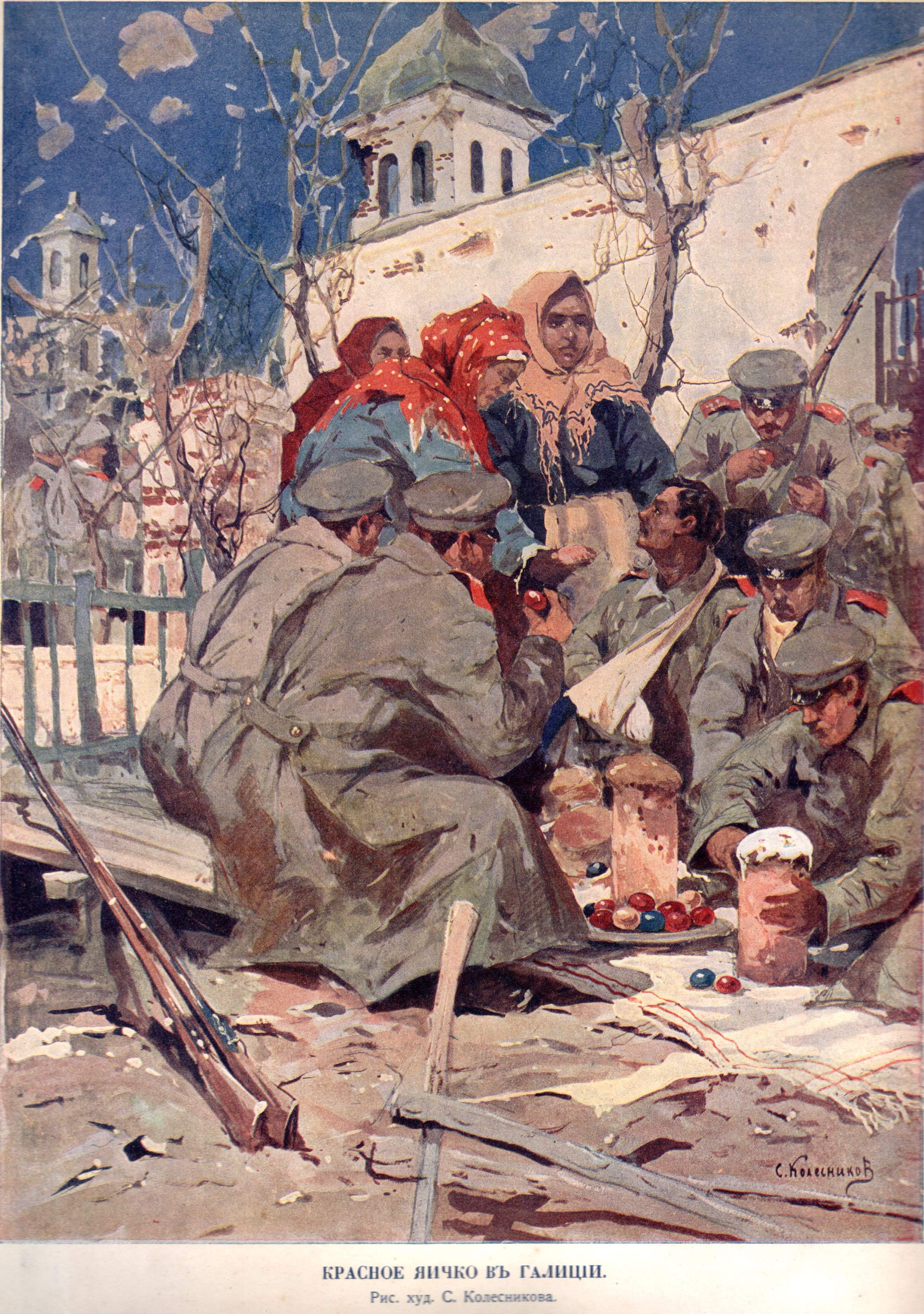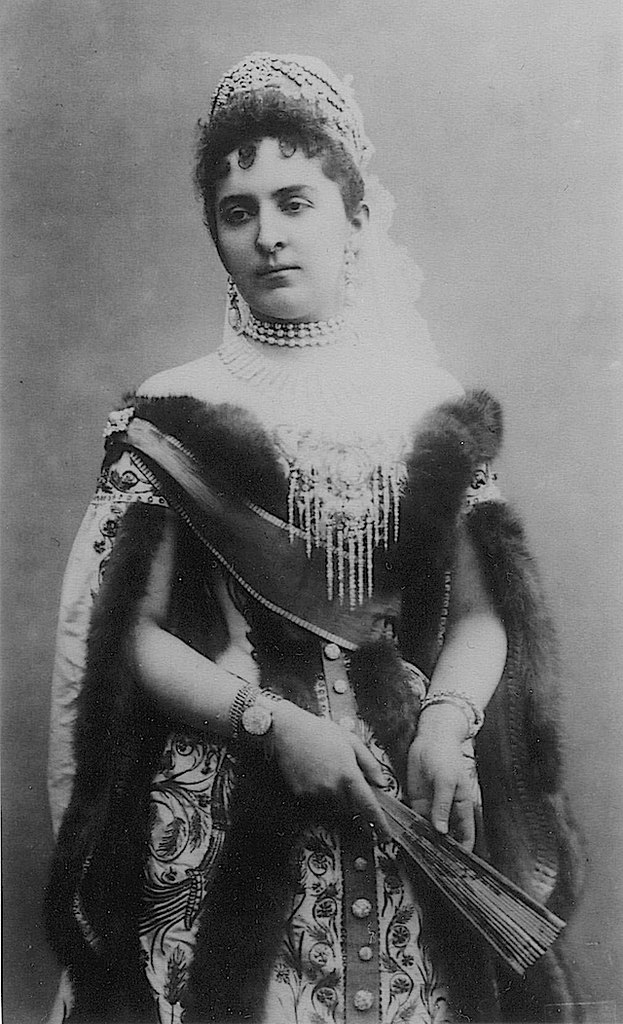|
Russian Occupation Of Eastern Galicia (1914–1915)
On August 18, 1914, the Russian Empire Battle of Galicia, invaded the Kingdom of Galicia and Lodomeria, Austrian Crownland of Galicia. On August 19, the Imperial Russian Army defeated the Austro-Hungarian Army, advanced 280–300 kilometers into the territory of Austria-Hungary and captured most of eastern Galicia. The principal city, Lemberg (now Lviv) fell into Russian hands on September 3.Von Hagen 2007, p. 19 Eastern Galicia had a population of approximately 4.8 million people.* Ukrainian Greek Catholic, Greek Catholic Ukrainians made up approximately 65% of the population of Eastern Galicia while Poles made up 22% of the population.Timothy Snyder. (2003). ''The Reconstruction of Nations.'' New Haven: Yale University Press. p. 123 It was the last large East Slavs, Eastern Slavic territory and the last historic part of the medieval state of Kievan Rus' to fall under House of Romanov, Romanov rule. The Russian Empire controlled and administered this territory of Austria-Hungary f ... [...More Info...] [...Related Items...] OR: [Wikipedia] [Google] [Baidu] |
Russian Empire
The Russian Empire was an empire and the final period of the Russian monarchy from 1721 to 1917, ruling across large parts of Eurasia. It succeeded the Tsardom of Russia following the Treaty of Nystad, which ended the Great Northern War. The rise of the Russian Empire coincided with the decline of neighbouring rival powers: the Swedish Empire, the Polish–Lithuanian Commonwealth, Qajar Iran, the Ottoman Empire, and Qing China. It also held colonies in North America between 1799 and 1867. Covering an area of approximately , it remains the third-largest empire in history, surpassed only by the British Empire and the Mongol Empire; it ruled over a population of 125.6 million people per the 1897 Russian census, which was the only census carried out during the entire imperial period. Owing to its geographic extent across three continents at its peak, it featured great ethnic, linguistic, religious, and economic diversity. From the 10th–17th centuries, the land ... [...More Info...] [...Related Items...] OR: [Wikipedia] [Google] [Baidu] |
Austrian Empire
The Austrian Empire (german: link=no, Kaiserthum Oesterreich, modern spelling , ) was a Central-Eastern European multinational great power from 1804 to 1867, created by proclamation out of the realms of the Habsburgs. During its existence, it was the third most populous monarchy in Europe after the Russian Empire and the United Kingdom. Along with Prussia, it was one of the two major powers of the German Confederation. Geographically, it was the third-largest empire in Europe after the Russian Empire and the First French Empire (). The empire was proclaimed by Francis II, Holy Roman Emperor, Francis II in 1804 in response to Napoleon's declaration of the First French Empire, unifying all Habsburg monarchy, Habsburg possessions under one central government. It remained part of the Holy Roman Empire until the latter's dissolution in 1806. It continued fighting against Napoleon throughout the Napoleonic Wars, except for a period between 1809 and 1813, when Austria was first all ... [...More Info...] [...Related Items...] OR: [Wikipedia] [Google] [Baidu] |
Lviv 1914
Lviv ( uk, Львів) is the largest city in western Ukraine, and the seventh-largest in Ukraine, with a population of . It serves as the administrative centre of Lviv Oblast and Lviv Raion, and is one of the main cultural centres of Ukraine. It was named in honour of Leo, the eldest son of Daniel, King of Ruthenia. Lviv emerged as the centre of the historical regions of Red Ruthenia and Galicia (Eastern Europe), Galicia in the 14th century, superseding Halych, Chełm, Belz and Przemyśl. It was the capital of the Kingdom of Galicia–Volhynia from 1272 to 1349, when it was conquered by King Casimir III the Great of Poland. From 1434, it was the regional capital of the Ruthenian Voivodeship in the Crown of the Kingdom of Poland, Kingdom of Poland. In 1772, after the First Partition of Poland, the city became the capital of the Habsburg Kingdom of Galicia and Lodomeria. In 1918, for a short time, it was the capital of the West Ukrainian People's Republic. Between the wars, th ... [...More Info...] [...Related Items...] OR: [Wikipedia] [Google] [Baidu] |
Georgiy Bobrinsky
Georgiy Aleksandrovich Bobrinsky (1863 – 1928) was a Russian military and government figure, Adjutant general, governor general of the General Government of Galicia and Bukovina. He was a son of Aleksandr Bobrinsky, a grandson of Catherine the Great , en, Catherine Alexeievna Romanova, link=yes , house = , father = Christian August, Prince of Anhalt-Zerbst , mother = Joanna Elisabeth of Holstein-Gottorp , birth_date = , birth_name = Princess Sophie of Anhal .... External links Fyodor Trepov {{DEFAULTSORT:Bobrinsky, Georgiy 1863 births 1928 deaths Emigrants from the Russian Empire to France Imperial Russian Army generals ... [...More Info...] [...Related Items...] OR: [Wikipedia] [Google] [Baidu] |
Russophiles Of Galicia
Galician Russophilia ( uk, Галицьке русофільство) or Moscophiles ( uk, Москвофіли) were participants in a cultural and political movement largely in the Kingdom of Galicia and Lodomeria, Austria-Hungary (currently western Ukraine). This ideology emphasized that since the Eastern Slavic people of Galicia were descendants of the people of Kievan Rus' (Ruthenians), and followers of Eastern Christianity, they were thus a branch of the Russian people. The movement was part of the larger Pan-Slavism that was developing in the late 19th century. Russophilia was largely a backlash against Polonisation (in Galicia) and Magyarisation (in Carpathian Ruthenia) that was largely blamed on the landlords and associated with Roman Catholicism. Russophilia has survived longer among the Rusyn minority, especially that in Carpathian Ruthenia and the Lemkos of south-east Poland. Terminology The "Russophiles" did not always apply the term to themselves and called thems ... [...More Info...] [...Related Items...] OR: [Wikipedia] [Google] [Baidu] |
Governor General
Governor-general (plural ''governors-general''), or governor general (plural ''governors general''), is the title of an office-holder. In the context of governors-general and former British colonies, governors-general are appointed as viceroy to represent the monarch of a personal union in any sovereign state over which the monarch does not normally reign in person. Governors-general have also previously been appointed in respect of major colonial states or other territories held by either a monarchy or republic, such as Japan in Korea and France in Indochina. Current uses In modern usage, in the context of governor-generals and former British colonies, the term ''governor-general'' originated in those British colonies that became self-governing within the British Empire. Before World War I, the title was used only in federated colonies in which its constituents had had ''governors'' prior to federating, namely Canada, Australia, and the Union of South Africa. In these cases ... [...More Info...] [...Related Items...] OR: [Wikipedia] [Google] [Baidu] |
Nikolai Yanushkevich
Nikolai Nikolaevich Yanushkevich (russian: Никола́й Никола́евич Янушке́вич) – 1918) was a Russian General who served as Chief of Staff of the General Headquarters (Stavka) of the Imperial Russian Army from August 1914 to September 1915. Biography A graduate of the Nikolaevskii Cadet Corp (1888) and Mikhailovskii Artillery School (1888), Yanushkevich was commissioned sub-lieutenant in the artillery of the Life Guards. He graduated from the Nikolaevskii General Staff Academy in 1896. Yanushkevich briefly served as a staff officer in the provinces before returning to the Life Guards as a company commander. From 1898 he served in a series of important administrative roles within the ministry of war, inc. Head of the Legislative Section of the Chancellery of the Minister of War (1905-1911) and Assistant Manager of the Chancellery of the Minister of War (1911-1913). Yanushkevich was appointed professor at the Nikolaevskii General Staff Academy (1910-1911 ... [...More Info...] [...Related Items...] OR: [Wikipedia] [Google] [Baidu] |
Grand Duke Nicholas Nikolaevich Of Russia (1856–1929)
Grand Duke Nicholas Nikolaevich of Russia (Russian: Николай Николаевич Романов (младший – ''the younger''); 18 November 1856 – 5 January 1929) was a Russian general in World War I (1914–1918). The son of Grand Duke Nicholas Nikolaevich of Russia (1831–1891), and a grandson of Emperor Nicholas I of Russia, he was commander in chief of the Imperial Russian Army units on the main front in the first year of the war, during the reign of his first cousin once removed, Nicholas II. Although held in high regard by Paul von Hindenburg, he struggled with the colossal task of leading Russia's war effort against Germany, including strategy, tactics, logistics and coordination with the government.Paul Robinson, "A Study of Grand Duke Nikolai Nikolaevich as Supreme Commander of the Russian Army, 1914–1915." ''Historian'' 75.3 (2013): 475-498online/ref> After the Gorlice–Tarnów offensive in 1915, Tsar Nicholas replaced the Grand Duke as commander ... [...More Info...] [...Related Items...] OR: [Wikipedia] [Google] [Baidu] |
Aleksei Brusilov
Aleksei Alekseyevich Brusilov ( rus, Алексе́й Алексе́евич Бруси́лов, p=ɐlʲɪkˈsʲej ɐlʲɪkˈsʲejɪvʲɪdʑ brʊˈsʲiɫəf; – 17 March 1926) was a Russian and later Soviet general most noted for the development of new offensive tactics used in the 1916 Brusilov Offensive, which was his greatest achievement. The innovative and relatively successful tactics used were later copied by the Germans. Born into the aristocracy to a father who was also a general, Brusilov trained as a cavalry officer, but by 1914 he realized that cavalry was obsolete in the new style of warfare because of its vulnerability to machine gun and artillery. Historians portray him as the only First World War Russian general capable of winning major battles. However, his heavy casualties seriously weakened the Russian army, which was unable to replace its losses. Despite his prominent role in the Imperial Russian Army, he sided with the Bolsheviks in the Russian Civil War an ... [...More Info...] [...Related Items...] OR: [Wikipedia] [Google] [Baidu] |
Alexander Kerensky
Alexander Fyodorovich Kerensky, ; Reforms of Russian orthography, original spelling: ( – 11 June 1970) was a Russian lawyer and revolutionary who led the Russian Provisional Government and the short-lived Russian Republic for three months from late July to early November 1917. After the February Revolution, February Revolution of 1917, he joined the newly formed provisional government, first as Justice ministry, Minister of Justice, then as Minister of War, and after July as the government's List of heads of government of Russia#Russian Provisional Republic, second Prime Minister of Russia, Minister-Chairman. He was the leader of the Social democracy, social-democratic Trudoviks, Trudovik faction of the Socialist Revolutionary Party. Kerensky was also a vice-chairman of the Petrograd Soviet, a position that held a sizable amount of power. Kerensky became the prime minister of the Provisional Government, and his tenure was consumed with World War I. Despite mass opposition t ... [...More Info...] [...Related Items...] OR: [Wikipedia] [Google] [Baidu] |
Mikhail Rodzianko
Mikhail Vladimirovich Rodzianko (russian: Михаи́л Влади́мирович Родзя́нко; uk, Михайло Володимирович Родзянко; 21 February 1859, Yekaterinoslav Governorate – 24 January 1924, Novo Miloševo, Beodra, Kingdom of Serbs, Croats and Slovenes) was a Russian Empire, Russian statesman of Ukrainian origin. Known for his colorful language and conservative politics, he was the State Councillor (Russia), State Councillor and chamberlain of the Imperial family, Chairman of the State Duma and one of the leaders of the February Revolution of 1917, during which he headed the Provisional Committee of the State Duma. He was a key figure in the events that led to the abdication of Nicholas II of Russia on 15 March 1917. Life Rodzianko was born in the village of Popasne. He came from an old and rich noble family of Ukrainian origin and was educated at the ''Page Corps, Corps des Pages''. From 1877 until 1882 he served in the Imperial G ... [...More Info...] [...Related Items...] OR: [Wikipedia] [Google] [Baidu] |






